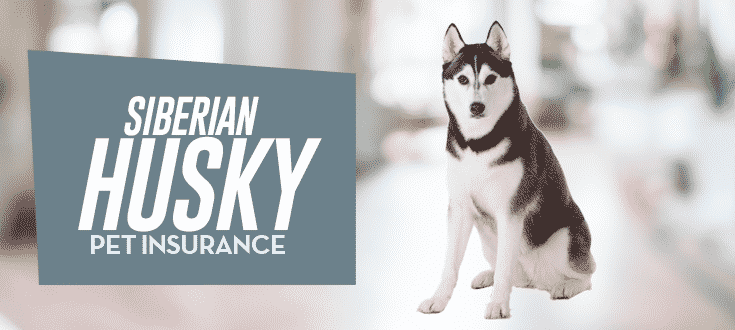Siberian Husky Pet Insurance
Free Pet Insurance Comparison
Compare Quotes From Top Companies and Save
Secured with SHA-256 Encryption

Zach Fagiano
Licensed Insurance Broker
Zach Fagiano has been in the insurance industry for over 10 years, specializing in property and casualty and risk management consulting. He started out specializing in small businesses and moved up to large commercial real estate risks. During that time, he acquired property & casualty, life & health, and surplus lines brokers licenses. He’s now the Senior Vice President overseeing globa...
Licensed Insurance Broker
UPDATED: Feb 3, 2025
Pet Insurance U receives compensation from the third parties included on this site. This includes payment for clicks from our site to insurance providers’ sites and quote requests generated. Our rankings and reviews are not affected by payments from the insurance companies. The compensation we receive allows the site to be free and regularly updated. Our goal is to review every pet insurance provider, but not all companies are listed on the site.
And many of the companies we review do not pay us anything. We simply rate, compare and review their plan because we feel it will be valuable to you. Our reviews are guaranteed to be unbiased, professional and advertising compensation does not influence rankings.
We are a free online resource for anyone interested in learning more about pet insurance. Our goal is to be an objective, third-party resource for everything pet insurance related. We update our site regularly, and all content is reviewed by pet insurance experts.
UPDATED: Feb 3, 2025
Pet Insurance U receives compensation from the third parties included on this site. This includes payment for clicks from our site to insurance providers’ sites and quote requests generated. Our rankings and reviews are not affected by payments from the insurance companies. The compensation we receive allows the site to be free and regularly updated. Our goal is to review every pet insurance provider, but not all companies are listed on the site.
And many of the companies we review do not pay us anything. We simply rate, compare and review their plan because we feel it will be valuable to you. Our reviews are guaranteed to be unbiased, professional and advertising compensation does not influence rankings.
On This Page
The Siberian husky has become popular in the US for its agility, attractive appearance and loyalty. As the name suggests, these huskies originated in Siberia, where they were bred by Eskimo peoples as a sled dog.
Though they are extremely active, these dogs can with proper training become excellent family pets, provided that they receive constant attention and are made to feel that they belong to a pack.
As you probably know, Siberian Husky’s can get to be rather large. Like owners of German Shepards, you have to make sure you have enough room for a larger breed dog.
Need Pet Insurance?
FACT: Pet insurance pays up to 90% of vet bills when your pet is sick or injured!
Siberian Husky Health Concerns
Siberian huskies are fairly robust dogs, usually living at least 12 years. Selective breeding has, however, left them susceptible to a number of congenital health problems:
- Bronchitis: the airways of dogs, like those of people, can become obstructed by fluid or inhaled objects, resulting in a cough. If the cough persists more than a day or two, owners are advised to consult their veterinarians, who can if necessary administer drugs to treat infections and to relax the bronchial tubes.
- Eye problems: the eyes of these dogs scratch easily, particularly in juveniles, and cataracts may form, requiring surgery to restore a dog’s sight. They are also prone to progressive retinal atrophy (PRA); as the name suggests, this disease occurs when the cells of a dog’s retinas degenerate. A single gene mutation is responsible for the problem, so it is imperative to know the breeding history before acquiring a puppy in order to ensure that none of its ancestors has gone blind.
- Gastrointestinal disorders: many huskies have sensitive stomachs, and they may pick up bacterial and parasitic infections while outdoors. These conditions are rarely life-threatening, but they are uncomfortable (and messy) for the dog. Drugs may be required to treat infections, and a special diet may be necessary. Stomach ulcers are also reported for this breed.
Huskies are so popular and expensive that thieves have been known to steal them for resale.
Related: 10 Things You Must Know Before You Buy Pet Insurance
Enter your ZIP code below to view companies that have cheap pet insurance rates.
Secured with SHA-256 Encryption
Pet Insurance for Siberian Husky
And just as you would take measures to prevent your dog from being stolen, it also makes sense to be prepared in advance to protect your dog’s health, and one way to do so is to choose the pet health insurance plan that is right for you.
For other types of dogs, check out our full list of dog breeds.
Other articles you may find helpful:
Is Exotic Pet Insurance Necessary?
The Best Pet Insurance By State
Fun Facts, Dog FAQ, And Unsolicited Dog Advice
5 Training Commands to Save Your Dog’s Life
The Ultimate Guide to Safe Foods for Dogs
How do you choose a dog breed? There are so many awesome options! We have compiled a complete database about all the dog breeds, their mannerisms, care, and who they do best with. Statistically, some purebreds experience more health issues than mixed breeds. There are many pet insurance companies out there and we have put together a great article about the best puppy and dog pet insurance companies in the US.
You may be interested in one of these dog breeds:
Bernese Mountain Dog Pet Insurance
Cavalier King Charles Spaniel Pet Insurance
Cocker Spaniel Breed Information
French Bulldog Breed Information
German Shepherd Breed Information
German Shorthaired Pointer Pet Insurance
Golden Retriever Breed Information
Havanese Dogs | Average Cost and Care
Jack Russell Terrier Pet Insurance
Labrador Retriever Breed Information
Miniature Schnauzer Pet Insurance
Rhodesian Ridgeback Pet Insurance
Shetland Sheepdog Pet Insurance
Staffordshire Bull Terrier Pet Insurance

Frequently Asked Questions
Why is pet insurance for Siberian Huskies necessary?
Pet insurance for Siberian Huskies is essential to protect your dog’s health. These dogs, although robust, are susceptible to congenital health problems. Insurance can help cover up to 90% of vet bills when your pet is sick or injured.
What health concerns are common in Siberian Huskies?
Siberian Huskies are generally robust, with a lifespan of at least 12 years. However, selective breeding has made them susceptible to certain health issues. It’s essential to be aware of these concerns and consider insurance coverage for potential veterinary expenses.
How does pet insurance work for Siberian Huskies?
Pet insurance for Siberian Huskies functions similarly to other pet insurance plans. It typically covers veterinary bills, including illness, injury, and preventive care. Choosing the right plan ensures that your pet receives proper medical attention without causing financial strain.
How can I choose the right pet insurance plan for my Siberian Husky?
Selecting the right pet insurance plan involves considering your dog’s specific needs, your budget, and the coverage options provided by different insurance companies. Compare quotes from top companies to find the most suitable coverage for your Siberian Husky.
Are there specific considerations for insuring larger dog breeds like Siberian Huskies?
Yes, larger dog breeds like Siberian Huskies may have specific considerations, such as the potential for higher veterinary costs due to their size. When choosing pet insurance, ensure that the plan adequately covers the unique needs and potential health concerns of larger breeds.
Can pet insurance protect against theft of Siberian Huskies?
Pet insurance typically does not cover theft, as it focuses on medical expenses. To protect against theft, consider additional measures such as microchipping and secure enclosures. However, insurance can be crucial for addressing health issues resulting from theft or other incidents.
How do I find the best pet insurance for my Siberian Husky?
To find the best pet insurance for your Siberian Husky, compare quotes from reputable companies. Consider the coverage options, premiums, and customer reviews. Ensure that the plan aligns with your dog’s needs and provides financial protection for potential veterinary expenses.
Is Pet Insurance Worth It for Healthy Breeds Like Siberian Cats?
While Siberian cats are generally healthy, unexpected accidents or illnesses can still occur. Pet insurance provides peace of mind and financial assistance when facing unexpected veterinary expenses. It can be a worthwhile investment to ensure your Siberian cat receives the best possible care throughout its life.
What Sets Pet Insurance U Apart as a Resource?
Pet Insurance U is a free online resource dedicated to providing objective, third-party information about pet insurance. They strive to offer unbiased reviews, comparisons, and valuable insights to help individuals make informed decisions about pet insurance for their furry companions.
How Often Should I Review My Pet Insurance Coverage?
It’s advisable to review your pet insurance coverage periodically, especially when there are changes in your pet’s health, age, or lifestyle. Regularly updating your coverage ensures that it aligns with your pet’s current needs and provides adequate protection in various situations.
Enter your ZIP code below to view companies that have cheap pet insurance rates.
Secured with SHA-256 Encryption
Zach Fagiano
Licensed Insurance Broker
Zach Fagiano has been in the insurance industry for over 10 years, specializing in property and casualty and risk management consulting. He started out specializing in small businesses and moved up to large commercial real estate risks. During that time, he acquired property & casualty, life & health, and surplus lines brokers licenses. He’s now the Senior Vice President overseeing globa...
Licensed Insurance Broker
We are a free online resource for anyone interested in learning more about pet insurance. Our goal is to be an objective, third-party resource for everything pet insurance related. We update our site regularly, and all content is reviewed by pet insurance experts.
